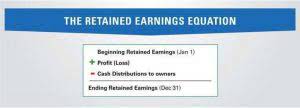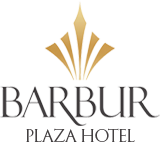Content

Bookkeeping includes the recording, storing and retrieving of financial transactions for a business, nonprofit organization, individual, etc. Accountants advise leadership on how to make more strategic financial changes that save the company money or generate more profit. For some of the businesses that they do, accountants also need to be registered certified public accountants (CPAs).
Bookkeeping is the ongoing recording and organization of the daily financial transactions of a business and is part of a business’s overall accounting processes. Whether it’s updating your books or bookkeeper synonym keeping in contact with your tax adviser, maintain your business’s financial records and expenses throughout the year. That way, you can be well prepared when it’s time to file taxes with the IRS.
Why Bookkeeping is important for all business?
Completing courses and workbooks can help you prepare for and pass your bookkeeping exam. When you apply for a job you can show your bookkeeping skills on your resume and cover letter, as well as during the job interview. In all cases, make sure to specify your type of bookkeeping skills and match them with the job description. When looking for a certified bookkeeper, first decide if you want to hire an independent consultant, a firm or a full-time employee if your business is large enough. Ask for referrals from friends, colleagues or your local chamber of commerce or search online social networks like LinkedIn for bookkeepers. A CIA is an accountant who has been certified in conducting internal audits.
- QuickBooks Online can help ensure that your business’s books close every month and that you’re primed for tax season.
- His research has been featured on the New York Times, Thrillist, VOX, The Atlantic, and a host of local news.
- You also have to decide, as a new business owner, if you are going to use single-entry or double-entry bookkeeping.
- A forensic accountant's job is to investigate, audit, and prove the accuracy of financial documents and dealings.
- AIPB certification requires bookkeepers to have at least two years of full-time work experience and pass a national exam.
- Whatever you decide, remember that you need to maintain adequate records of business transactions.
- Awarded by the CFA Institute, the CFA certification is one of the most respected designations in accounting.
His research has been featured on the New York Times, Thrillist, VOX, The Atlantic, and a host of local news. More recently, he's been quoted on USA Today, BusinessInsider, and CNBC. There’s often confusion regarding the difference between a bookkeeper and an accountant, so we should clarify before moving any further.
What Is Bookkeeping? Qualifications, Salary And Key Considerations
A bookkeeper is responsible for recording and maintaining a company’s daily financial transactions. They also prepare reports for the managers and trial balances to assist the accountants. A bookkeeper may also help you run payroll, collect debts, generate invoices and make payments. When it’s finally time to audit all reported financial transactions, bookkeepers produce reports that provide an accurate look into how the company delegated its capital.
A bookkeeper is skilled at keeping documents and tracks a wide net of financial information. As an accountant, you must pay attention to figures and financial details, but it is more essential to possess sharp logic skills and big-picture problem-solving abilities. While bookkeepers make sure the small pieces fit correctly into place, accountants https://www.bookstime.com/articles/how-to-write-a-receipt use those small pieces to draw much more significant and broader conclusions about a company's finances. You can become a bookkeeper right out of high school if you prove you are good with numbers and have strong attention to detail. In fact, many aspiring accountants work as bookkeepers to get a foot in the door while still in school.
What Do You Need to Set Up Bookkeeping for Your Business?
Regardless of whether you are pursuing credentials through AIPB or NACPB, your supervisor or a former employer must validate your experience hours. Requirements for CB certification are more extensive, as they ask for at least 3,000 hours of experience or two years of bookkeeping or accounting experience. A bookkeeper certification tells employers that you have all the skills and expertise required for advanced bookkeeping.


